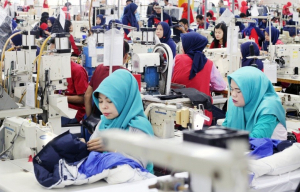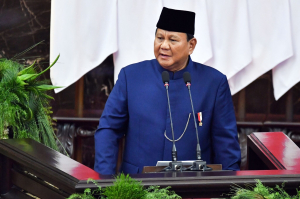Labour Party explains reasons for rejecting Job Creation Law
Labour Party President Said Iqbal explained the rejection of the Omnibus Law on Job Creations was based on several reasons. First, the Job Creation Law reinstates the concept of cheap wages, which will certainly affect laborers' welfare. The second is the Job Creation Law opens opportunities for lifetime outsourcing and removes restrictions on the type of jobs that can be outsourced. Consequently, based on the Job Creation Law, companies are allowed to outsource all types of jobs, including essential and core jobs of the company.
Another reason for the rejection is that Job Creation Law does not limit the number of times a work contract can be extended. The new Job Creation Law also implements low severance payment calculation.
"Sixth, we are also concerned about working time arrangement, and seventh, regulation on leave for female workers on their period and maternity leaves," Iqbal said.
The Labour Party and union workers also rejected articles that allow foreign workers to be employed before their administrative requirements were fulfilled. The Labour Party is concerned that such articles will open the way for Chinese unskilled workers to work in all industrial sectors and create horizontal conflict between local workers and foreign workers. "The ninth reason is the abolishing of criminal sanction as regulated in Manpower Law No. 13 of 2003," Iqbal added.
Already have an account? Sign In
-
Start reading
Freemium
-
Monthly Subscription
30% OFF$26.03
$37.19/MonthCancel anytime
This offer is open to all new subscribers!
Subscribe now -
Yearly Subscription
33% OFF$228.13
$340.5/YearCancel anytime
This offer is open to all new subscribers!
Subscribe now






